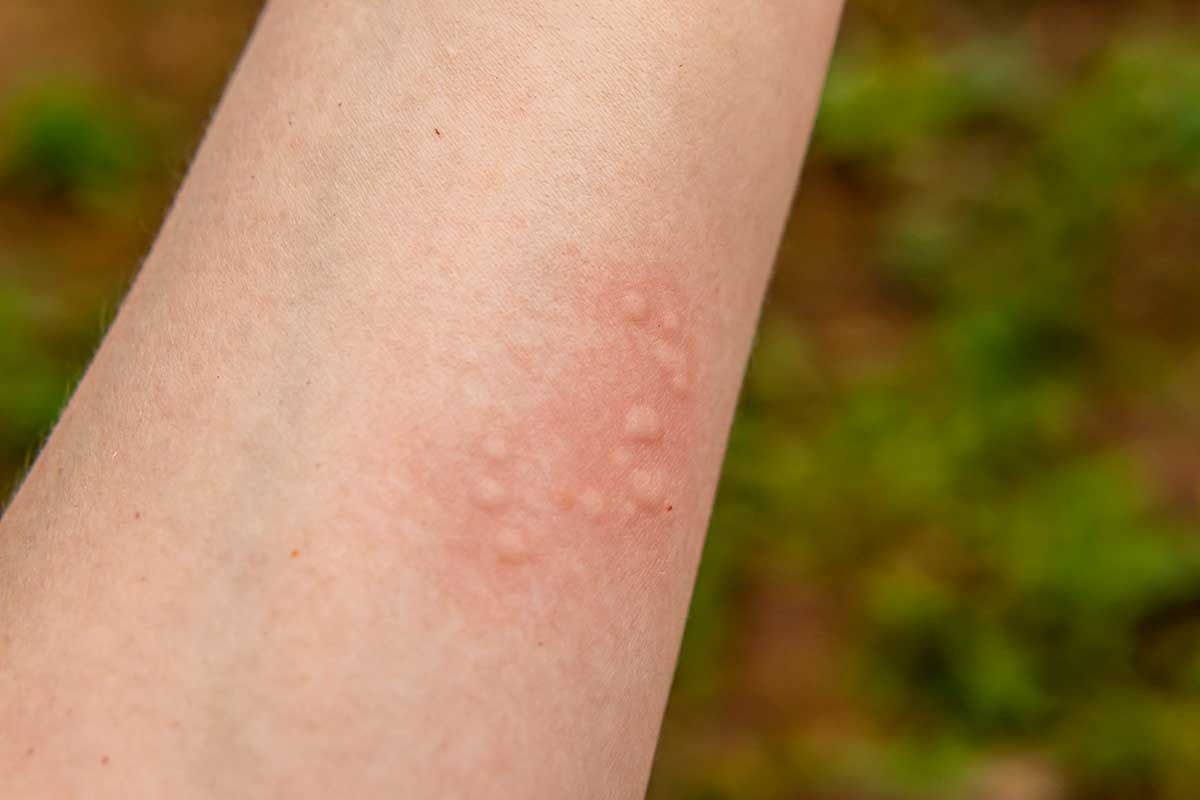All About Urticaria: Symptoms, Causes, and Treatments
Urticaria, commonly known as hives, is a widespread skin condition that affects individuals of all ages. Characterized by itching, redness, and swelling, it can range from mild and transient to severe and persistent. Understanding the symptoms, causes, and treatment options is vital for managing urticaria effectively and improving overall quality of life.
What Is Urticaria?
Urticaria is a skin reaction marked by red, swollen welts (wheals) that can appear anywhere on the body. These lesions may vary in size and shape, often merging to form larger patches.
Types of Urticaria
Acute Urticaria:
This form lasts less than six weeks and is typically triggered by allergens or infections. Acute episodes are often sudden and intense but resolve once the trigger is removed.Chronic Urticaria:
Symptoms persist or recur for more than six weeks. Chronic urticaria can significantly impact daily life and may occur without an identifiable cause, a condition known as chronic idiopathic urticaria.
The Role of Histamine
When triggered, the immune system releases histamine and other chemicals, causing inflammation, itching, and swelling in the affected areas. This mechanism underscores the need for antihistamine-based treatments.
Symptoms of Urticaria
Urticaria symptoms vary depending on severity and duration but generally include skin irritation and discomfort.
Key Symptoms
- Red or skin-colored welts: These lesions often appear suddenly and may change location within hours.
- Intense itching: One of the hallmark symptoms, which can disrupt sleep and daily activities.
- Burning sensation: Some individuals may experience discomfort beyond itching, especially in severe cases.
Acute vs. Chronic Urticaria
- Acute urticaria: Symptoms are short-lived and often linked to specific triggers like foods or medications.
- Chronic urticaria: Episodes are more prolonged and may lack a clear cause, making management more challenging.
Severe Cases: Urticaria with Angioedema
Angioedema refers to deeper swelling affecting areas like the lips, eyelids, and throat. When this occurs, it can pose a life-threatening risk, particularly if it compromises breathing.
Causes of Urticaria
Urticaria arises from various factors, including allergic, physical, and idiopathic triggers.
Allergic Factors
- Foods: Common culprits include nuts, shellfish, eggs, and dairy.
- Medications: Antibiotics, anti-inflammatory drugs, and pain relievers can induce reactions.
- Insect stings: Bees, wasps, and ants are frequent triggers.
Physical Triggers
- Environmental conditions: Exposure to heat, cold, sunlight, or pressure can lead to symptoms.
- Exercise-induced urticaria: Strenuous activity may provoke a reaction in sensitive individuals.
Non-Allergic Causes
- Infections: Viral, bacterial, or fungal infections often act as triggers.
- Stress: Emotional stress exacerbates symptoms in many patients.
- Autoimmune conditions: In some cases, the immune system attacks healthy tissues, leading to chronic urticaria.
Idiopathic Urticaria
When no specific cause can be identified, the condition is classified as idiopathic. This is common in chronic cases, requiring a broader treatment approach.
Diagnosing Urticaria
Accurate diagnosis is essential to determine the underlying cause and guide treatment effectively.
Medical History
Doctors assess a patient’s medical history to identify potential triggers, symptom patterns, and any associated conditions. A history of allergies or recent infections is particularly relevant.
Physical Examination
A thorough examination helps differentiate urticaria from other skin conditions. The size, shape, and distribution of lesions provide clues about the type of urticaria.
Complementary Tests
- Allergy tests: Skin prick tests or blood tests identify allergens responsible for the reaction.
- Additional screenings: In chronic cases, tests may rule out autoimmune disorders, infections, or other underlying issues.
Treatments for Urticaria
Treating urticaria focuses on symptom relief and addressing underlying triggers.
Medications
Antihistamines:
These are the first-line treatment, blocking histamine to reduce itching and swelling.Corticosteroids:
Reserved for severe or persistent cases, these reduce inflammation but require careful use due to side effects.Adrenaline (Epinephrine):
Essential in emergencies like anaphylaxis, it quickly reverses life-threatening symptoms.Biological Therapies:
For chronic urticaria, omalizumab is a targeted therapy that reduces immune overreaction.
Skin Care Tips
- Avoid scratching: Prevents secondary infections and further irritation.
- Use cold compresses: Reduces itching and inflammation.
- Wear loose clothing: Minimizes friction and discomfort.
Specific Treatments for Chronic Cases
- H2 blockers: These target a secondary histamine receptor, providing additional relief.
- Immunomodulators: Used in autoimmune-linked chronic urticaria.
Preventing Urticaria
Prevention strategies focus on minimizing exposure to known triggers and promoting overall skin health.
Avoid Known Triggers
- Work with an allergist to identify and eliminate specific allergens.
- Adjust your diet or medications under medical supervision.
Lifestyle Adjustments
- Reduce stress: Engage in mindfulness or relaxation exercises.
- Improve immunity: Maintain a balanced diet and regular physical activity.
- Hydration and skin care: Keep skin moisturized and protected from harsh weather conditions.
Medical Monitoring
For chronic urticaria, regular check-ups ensure treatments remain effective and help prevent flare-ups.
Complications Associated with Urticaria
Without proper management, urticaria can lead to both physical and emotional challenges.
Impact on Quality of Life
- Disrupted sleep: Persistent itching often interferes with rest.
- Mental health issues: Anxiety or depression stemming from the condition's visibility and discomfort.
Severe Cases
- Angioedema: Swelling of the throat or tongue requires immediate medical attention.
- Anaphylaxis: Though rare, this severe allergic reaction is life-threatening and demands urgent treatment.
When to See a Doctor
Seeking medical attention ensures timely intervention, especially in complicated or persistent cases.
Key Indicators
- Symptoms lasting longer than a few days or recurring frequently.
- Severe swelling, particularly around the face or throat.
- Lack of improvement despite over-the-counter medications.
Prompt diagnosis and treatment are crucial to prevent complications and provide relief.
Conclusion
Urticaria is a manageable condition with proper diagnosis and treatment. From identifying triggers to adopting effective therapies, patients can significantly reduce symptoms and improve their quality of life. Early intervention is key to avoiding complications and ensuring a swift recovery.
Schedule a consultation with the experts at Clinic Consultation for a personalized approach to diagnosing and treating urticaria effectively.
